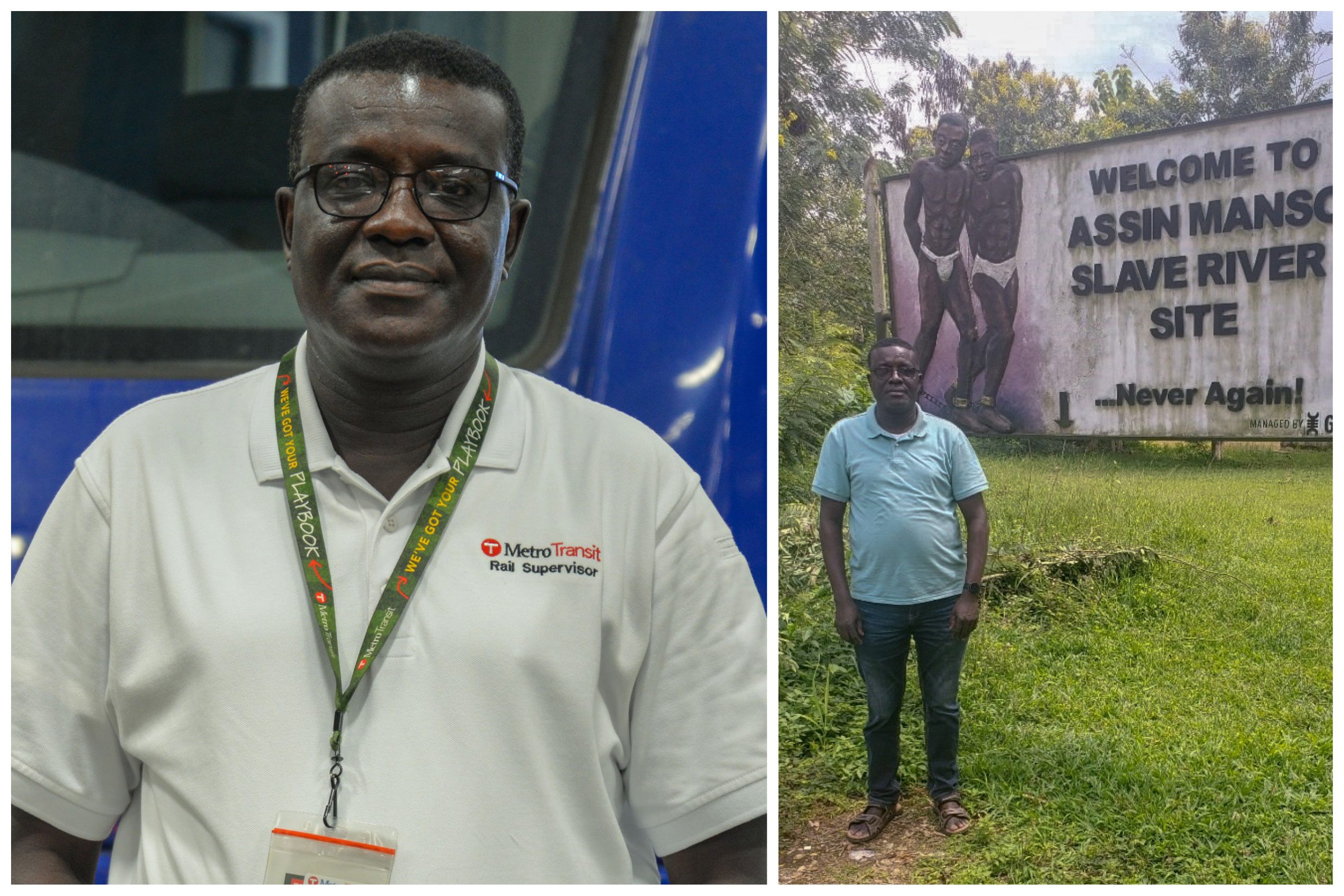
Metro Transit employees come from many cultures and backgrounds. To celebrate this diversity, employees who are proud to share their heritage and identity will be regularly featured on the Riders' Almanac blog. Read more stories here.
Tell us a little bit about your background.
I grew up in Assin Manso, Ghana, in a typical African household. My dad was an electrical engineer, my mom was a nurse, and I was one of ten children. We had a very decent life. I went to the best schools and to college, where I studied philosophy. As a kid, trains would go by and I was just fascinated with them, which is why the idea of working in rail was so exciting later in life.
How did you become interested in moving to the United States?
The small town where I grew up is on a very important river, known as the Slave River, which was a passageway for people who were being shipped from Africa to places like the United States and Brazil where they were enslaved. As I child, I saw visitors come to step foot in the river and learned that was a show of respect for their ancestors. That’s what originally aroused my curiosity in the United States.
How did you arrive in Minnesota?
When I was about 32, I applied for a Diversity Visa and got an opportunity to move to the United States. After living in Columbus, Ohio, a friend encouraged me to move to Minneapolis. I arrived here on Thanksgiving Day 2002 and originally worked as a mail carrier. In 2007, I became a bus operator. Since then, I’ve worked as a train operator, relief instructor and for the past three years, as a rail supervisor. Along the way, I’ve earned degrees from St. Mary’s and Metro State and have had three children. It’s been a great experience.
How do you experience Ghanaian culture in Minnesota?
There isn’t a large Ghanaian population in Minnesota, but we accept each other instantly and are expected to attend funerals and gatherings for new babies, known as an Outdooring. I still travel back occasionally and look forward to taking my children there next year.
What is the biggest difference between Ghana and the United States?
In Ghana, there’s a much greater reliance on community, and a feeling that your survival depends on the community’s survival. I see that sometimes show up at work, like when someone who’s moved here from Africa misses a train and uses the emergency phone to call the Rail Control Center ask for a ride. It’s a very different culture.
In Ghana, there’s also less freedom to speak out, especially if you are a child. The country is starting to come of age and is becoming a more vibrant democracy, but it was not always that way.